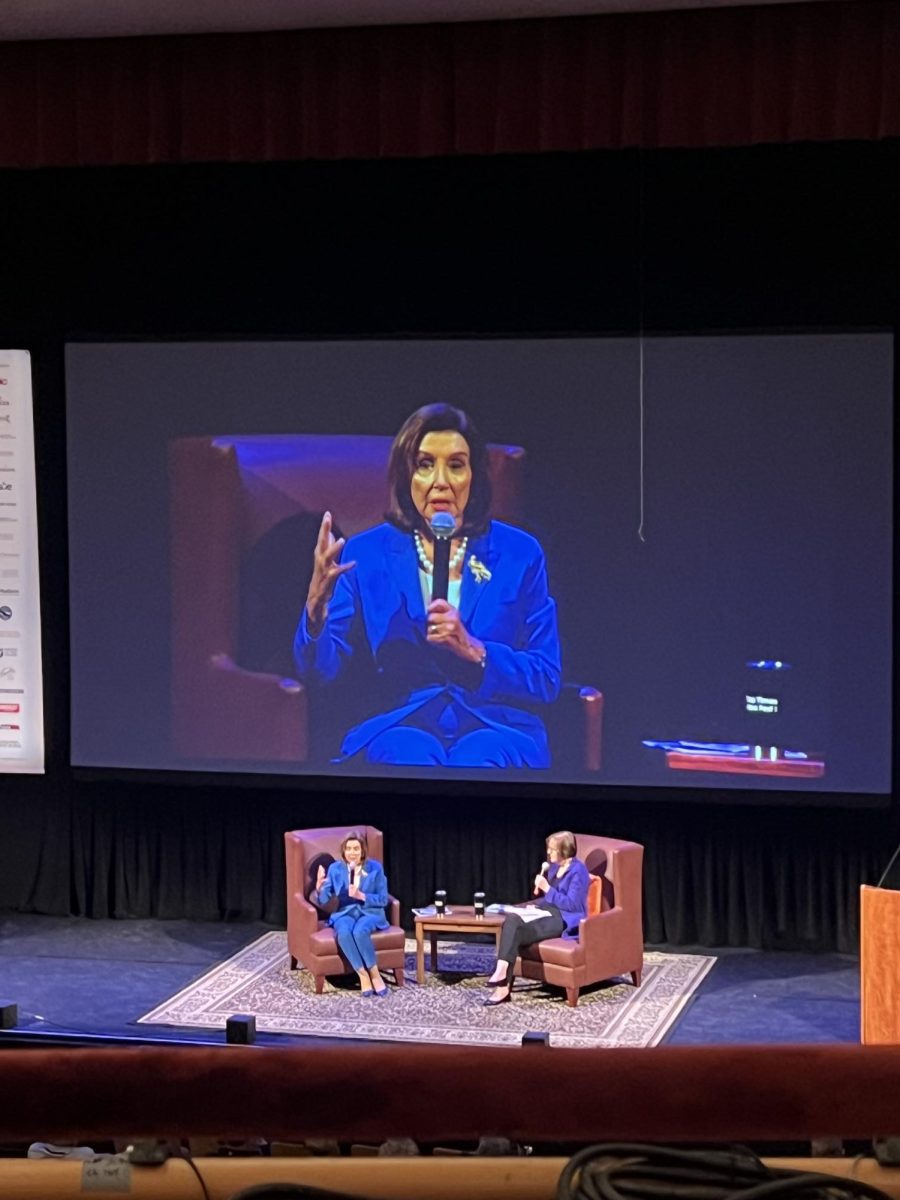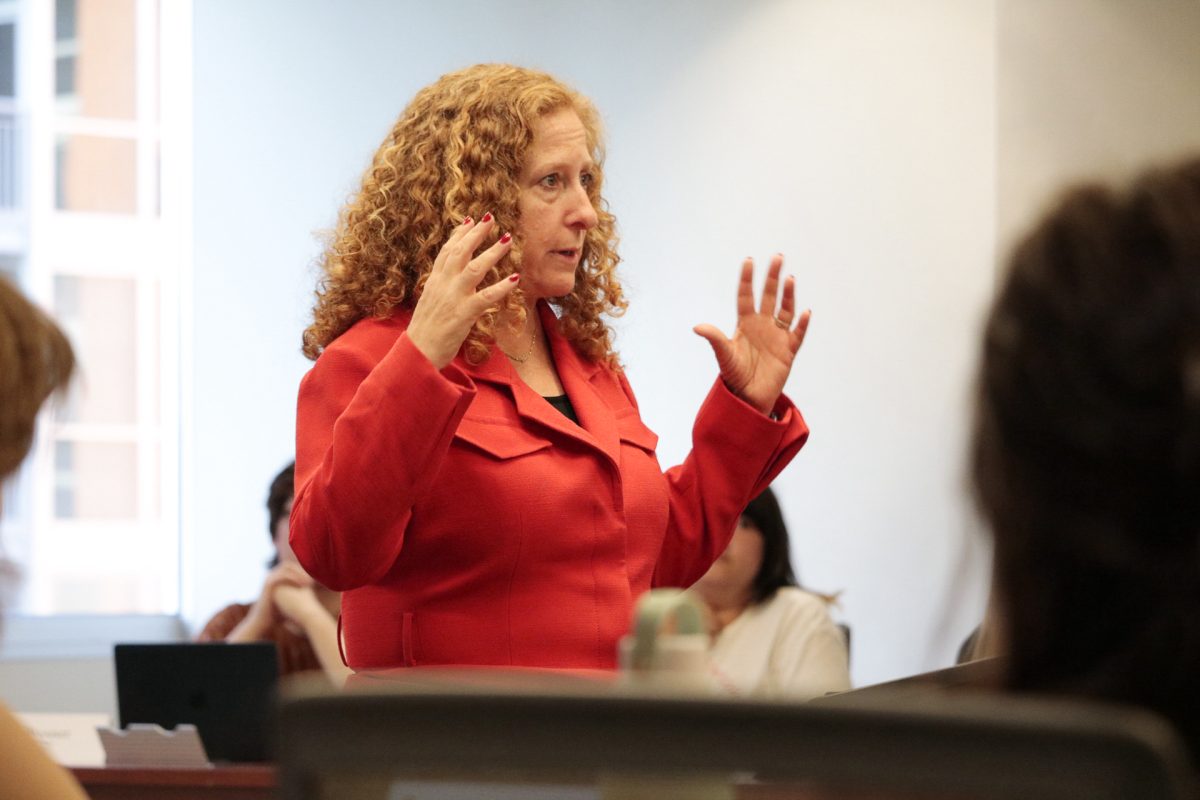Depending on who is describing it, the Tea Party has been called – among many other things – an educational effort, a conduit for out-of-state special interest funding, a movement of empowerment and the same old conservative rhetoric.
Regardless of political ideology, most people would agree the movement has made significant growth in the past year and may have a large amount of influence in coming elections.
How influential, however, and in what ways is less clear.
History of the Tea Party
According to Mark Block, Wisconsin director of Americans for Prosperity, a national Tea Party group, the Tea Party movement was born out of fear and frustration. He said people all over the country were feeling threatened by the intrusion of government in their lives.
He said this feeling was intensified when a 2009 congressional recess left people and lawmakers deciding where they stand on the controversial health care bills. Three Wisconsin congressmen chose not to hold town hall meetings on the bill, so Americans for Prosperity stepped in to give citizens a forum to discuss their concerns. A total of several thousand people showed up for these meetings.
In April 2009, Americans for Prosperity held a rally on the steps of the capitol in Madison that attracted more than 8,000 people.
It was these people, along with attendees of other similar events, bringing these concerns back to their local communities that was at the heart of what Block described as “the explosion of the movement.”
Block said many of these people did not realize there were others who had similar ideas about the government. He said it was typical for a majority of these event attendees to have no experience being involved in politics. He said being able to be active in their own communities gave these people a sense of empowerment.
“People who had never been involved in the process before… seemed to have found a new home,” Block said.
Tea Party Today
Involving one large national umbrella organization with 31 state chapters and countless related groups throughout the country, the movement has clearly grown from the small rallies of its formation.
Block said the movement is made up of Republicans, Democrats and Independents who have a problem with country’s current economic path.
Block said the goals of the Tea Party are not to endorse or campaign for candidates, but rather to educate the public on issues and how candidates have been living up to their promises.
He pointed to features such as an online “legislative report card,” which grade current political representatives on their job performance as examples of their educational efforts.
However, in an e-mail to The Badger Herald, Democratic Party of Wisconsin representative Graeme Zielinski said the description of the movement as an educational apparatus was untrue. He said the movement gives support to the same Republican ideals and candidates using new media strategies to create buzz.
“At the heart of it, it’s the same old thing,” he said.
This November
UW professor of political science Charles Franklin said there are two things that make this November’s elections unique – the set of national forces at work this year versus four years ago and how much the Tea Party has added to or created those national forces.
With or without a Tea Party, Franklin said the current state of the economy, the performance of the Obama Administration and the recent controversy over many policies have created a midterm election where Democrats are not favored. Couple these factors with the fact that a president’s party usually loses seats in midterm elections, and he said Democrats should expect to lose between 30 and 35 seats in the house and senate.
However, projections for these elections show Democrats losing up to 50 total seats. This difference in numbers, Franklin said, could possibly be attributed to Tea Party activism.
He added there have been a number of Republican candidates embracing and running on Tea Party ideals this election, and in a way tying their own political futures to the success of the movement.
Zielinski said while many Tea Party members have been active in the campaign, whether they will drastically alter the outcome of elections can not yet be gauged.
“They’ve got an apparatus that whips people up… and divides our state, but whether they can get people to the polls [remains to be seen],” he said. “I think that people are going to be really enthusiastic to vote against these folks.”
Block disagreed, saying people respond to and will vote for Tea Party candidates because they are running out of a feeling of need for change.
He said this feeling has convinced vast numbers of people who previously had no political involvement to show up for events and speak for what they believe in.
“I think you will see a tsunami (of Tea Party voters) of epic proportions at the polls in Wisconsin,” Block said.
Longevity of the Movement
Both Zielinski and Block agreed of the Tea Party movement may not be long lived. Zielinski said it is not uncommon to see swells of enthusiasm for political movements, and said he believes Wisconsin Democrats will be able to overcome the surge.
“It doesn’t surprise me that they have their moment… but these things go in cycles,” Zielinski said. “We certainly have a ground game that is second to none.”
Block said during the early Tea Party rallies he considered the level of enthusiasm for the movement to be “a flash in the pan.”
However, seeing the current level of enthusiasm for the movement, he said he does not know what will happen. Certainly, he said, it is a goal of the movement to stay involved and hold elected officials accountable for the promises they made in campaigns, but said he fears that after the elections the movement will “go to sleep.”
According to Franklin, the future of the Tea Party is dependent on getting their candidates elected. He said while many people may embrace the ideals of the motion, lasting political impact is created by representatives casting their votes at roll call.
If their candidates are elected, he said, it will force both major parties, especially Republicans, to work with the Tea Party candidates on many legislative issues.
For example, he said, to convince a Tea Party candidate, someone who ran on fiscal responsibility, to vote yes on an unbalanced budget, he said leadership will have to bring some Tea Party issues that they ordinarily would not consider to the table.
“You’ve got to be able to win elections to control political power,” Franklin said.












